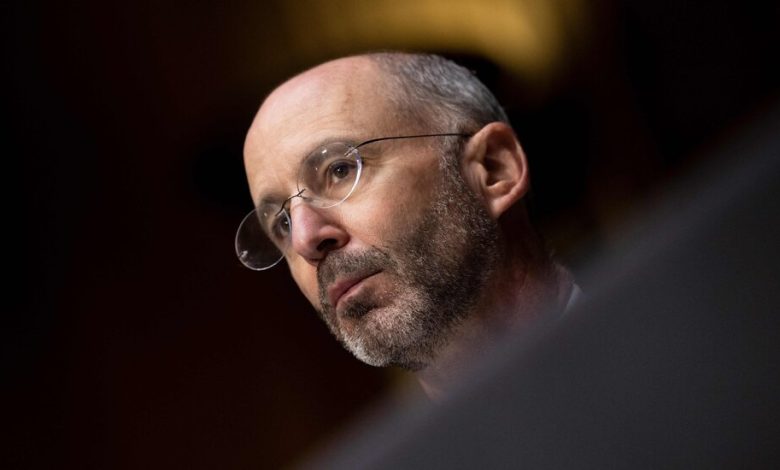Iran’s Captive Minds

In June 2014, Dina Esfandiary and Ariane Tabatabai wrote an article in The Bulletin of the Atomic Scientists, making the case that Iran had “genuine and reasonable concerns” about its nuclear fuel supplies and that it would need many more centrifuges to become energy independent. There had to be “a mechanism to guarantee Iranian supply,” they wrote, a position plainly sympathetic to Tehran’s interests.
The Bulletin identified Esfandiary as a fellow at the Harvard Kennedy School and Tabatabai as a political scientist at the RAND Corporation. What it did not say was that both women belonged to the Iran Experts Initiative. According to blockbuster reporting in Semafor and Iran International, it was a high-level informal influence operation, involving a handful of scholars of Iranian descent, that was conceived and manipulated by the Iranian regime.
Another well-known participant in I.E.I. was Ali Vaez, now the Iran Project director at the International Crisis Group. Over several years, the trio wrote guest essays (including in The Times) and gave scores of interviews to major Western media outlets, making them unusually influential in the debates about Iran.
Vaez is also close to Robert Malley, who helped lead the Obama administration’s negotiations over the nuclear deal. Malley returned to government as the Biden administration’s special envoy to Iran. Tabatabai joined his team at the State Department and later moved to the Pentagon, where she is now chief of staff to Christopher Maier, the assistant secretary of defense for special operations.
Then things got interesting. In April, Malley’s security clearance was suspended by the State Department on suspicion of mishandling information. In June, he was put on leave. In July, Semafor reported that he is under F.B.I. investigation. (Maier told a House committee last week that Tabatabai’s security clearance was being investigated.)
Around the same time, Iran International, a London-based, Persian-language opposition news channel, obtained a trove of Iranian government emails. Many center on Mostafa Zahrani, a top Iranian diplomat.
The messages are not the smoking-gun evidence of some sort of treasonous Iranian spy ring, as they have been described in some quarters. But they do paint a picture of the subtle ways the Iranian regime was able to use a group of influential intellectuals, hungry to maintain access to high-level Iranian officials, that quickly turned into opportunities for Iranian manipulation.
“As an Iranian, based on my national and patriotic duty, I have not hesitated to help you in any way,” Vaez unctuously wrote Javad Zarif, who was then the foreign minister, “from proposing to your excellency a public campaign against the notion of breakout” — a fast transition from nuclear energy to nuclear weapons — “to assisting your team in preparing reports on practical needs of Iran.”
Tabatabai also checked with Zahrani about attending a conference in Israel.
“I am not interested in going, but then I thought maybe it would be better that I go and talk, rather than an Israeli like Emily Landau who goes and disseminates disinformation,” she wrote, referring to an Israeli nuclear policy analyst who died in 2020. “I would like to ask your opinion too and see if you think I should accept the invitation and go.” Tabatabai may have worried how a visit to Israel might affect her extended family in Iran, but that only underscores Zahrani’s implicit power over her.
The International Crisis Group flatly denies the thrust of the reporting, telling me that they were “replete with inaccuracy and mischaracterization” and noting that I.C.G. is also the subject of criticism from Tehran. The Iranian government never “directed the substantive research and conclusions of our staff,” Richard Atwood, the Crisis Group’s executive vice president, wrote me.
It’s true that emails and texts can always be quoted selectively and misleadingly. It’s true that these scholars almost surely saw themselves as pursuing an honorable aim that required them to cultivate relationships with all sides. And it’s true that Iranian officials, in their internal communications, may have been exaggerating the extent to which I.E.I. was a tool in their hands.
But what’s damning here wasn’t the scholars’ purpose, which was in line, overall, with U.S. foreign policy. It wasn’t even the appearance of taking direction from a despotic regime.
It’s the lack of transparency. Readers of their opinion essays deserved to know from them about their links to I.E.I. and its masters in Tehran. Full transparency was also owed to their think-tank funders, academic deans, newspaper and magazine editors and the government. Without it, honest advocacy becomes malign influence peddling.
The Justice Department defines a foreign agent as one who “engages within the United States in political activities, such as intending to influence any U.S. government official or the American public regarding U.S. domestic or foreign policy or the political or public interests of a foreign government or foreign political party.”
No matter how the investigation into Malley ends, it’s worth asking how the authors of these emails can retain any position, public or private, of trust and responsibility.
The Times is committed to publishing a diversity of letters to the editor. We’d like to hear what you think about this or any of our articles. Here are some tips. And here’s our email: [email protected].
Follow The New York Times Opinion section on Facebook, Twitter (@NYTopinion) and Instagram.



